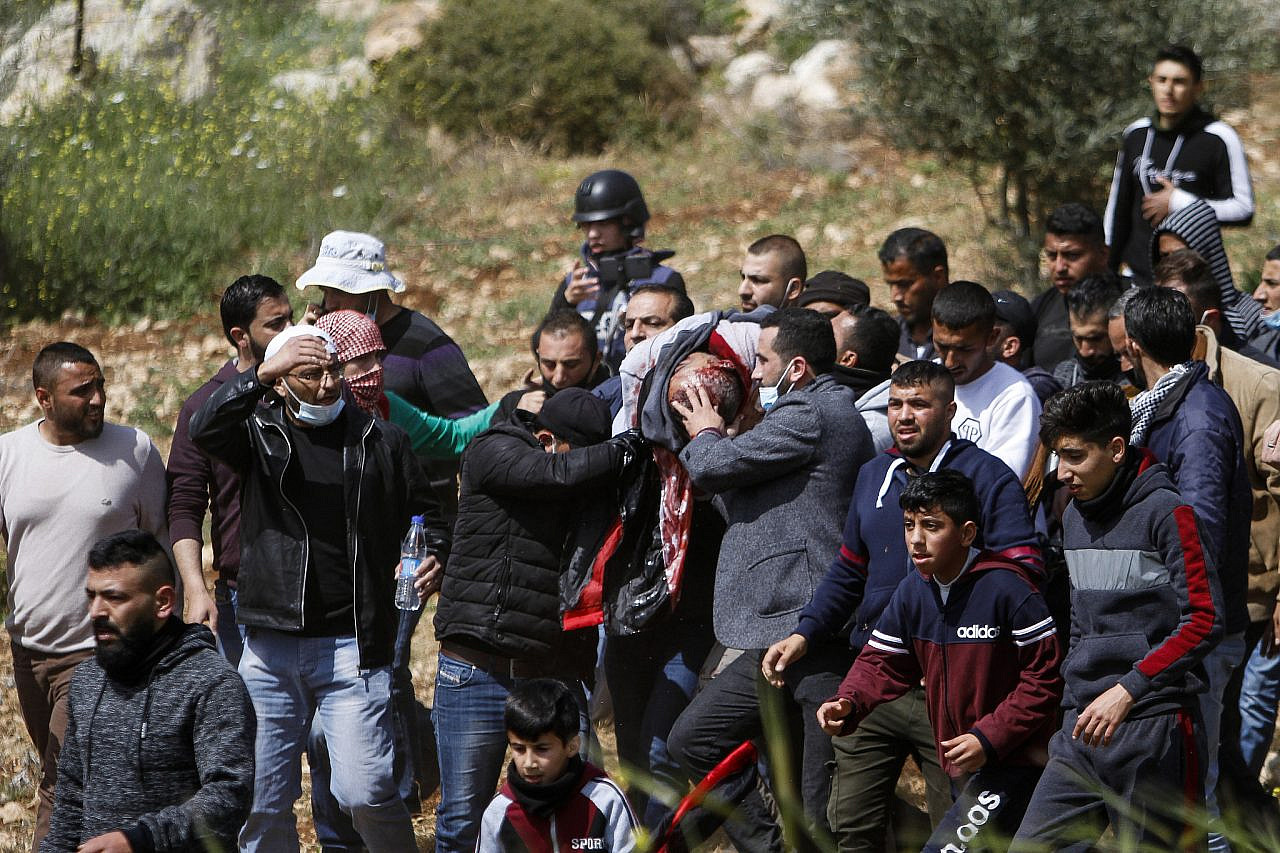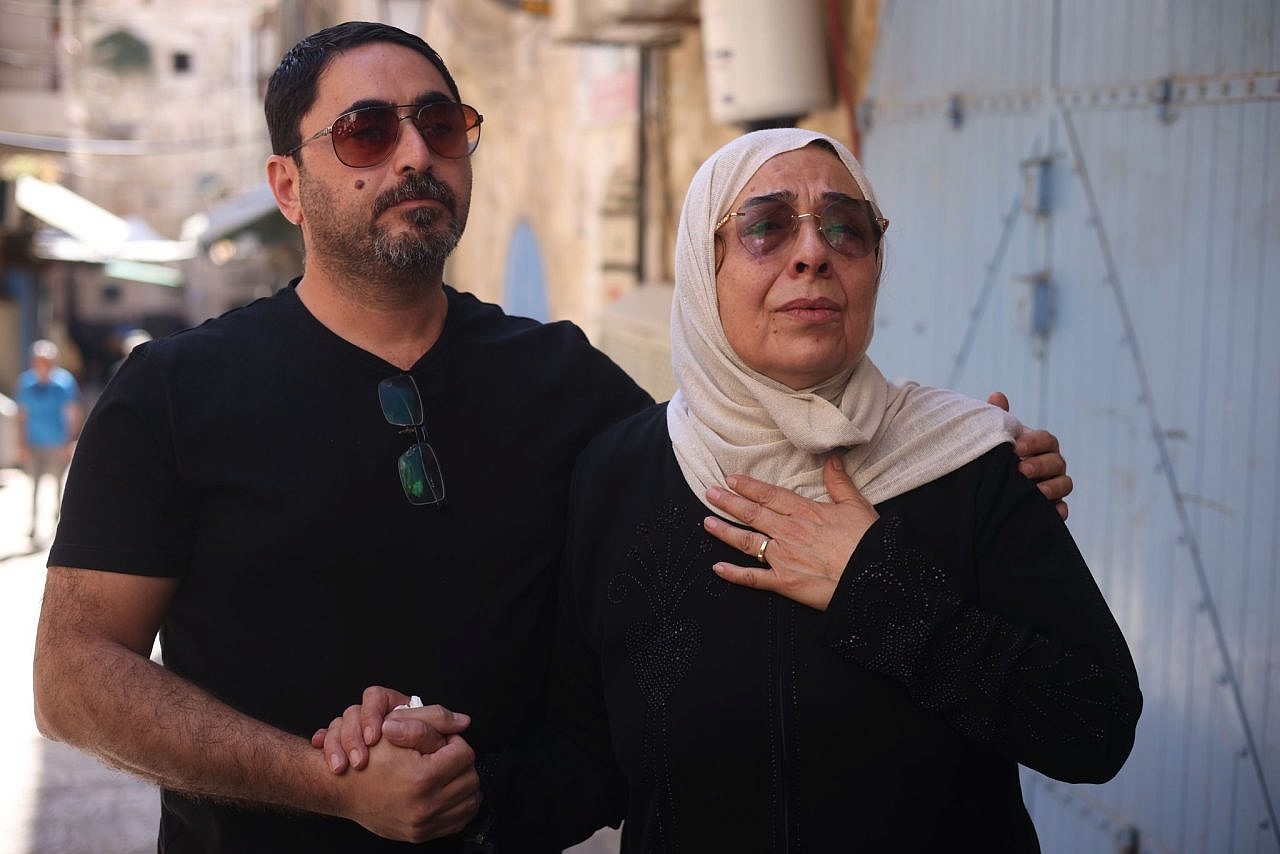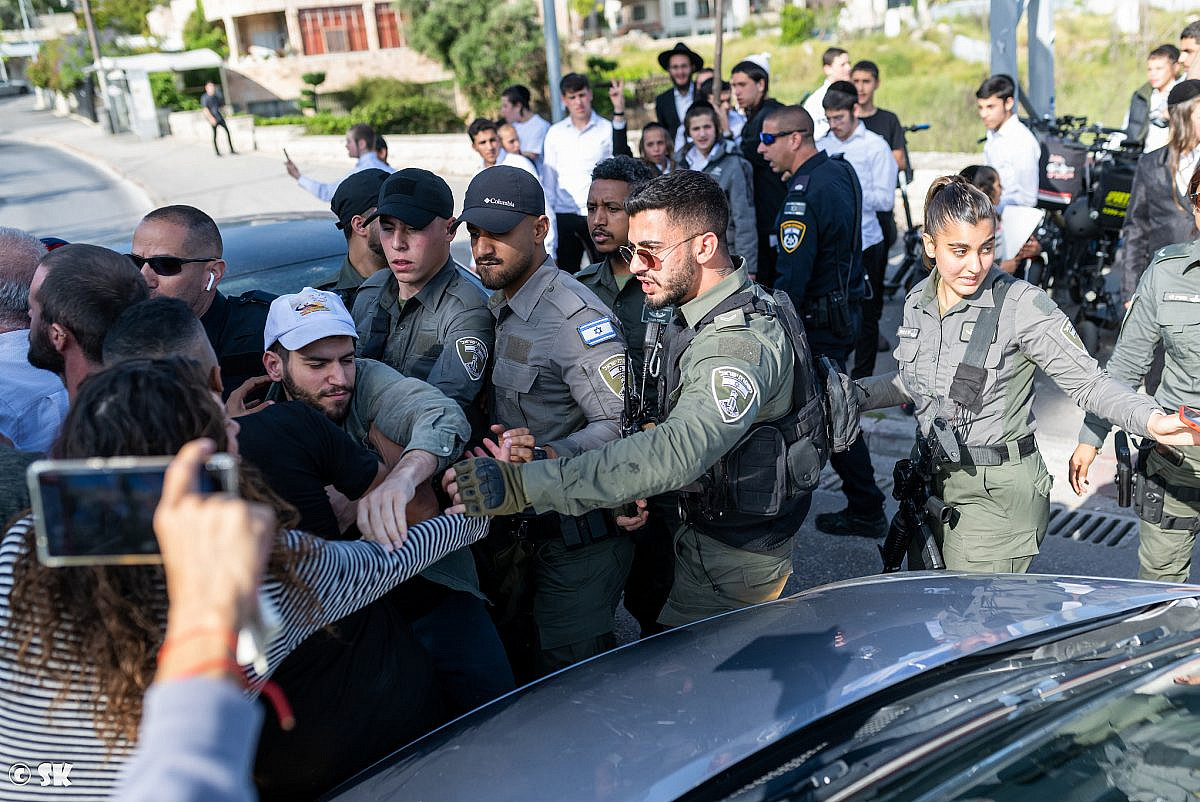A left-wing Israeli activist who had been in jail for almost a week over a hat he wore to a protest was released by the Jerusalem Magistrate’s Court on Tuesday morning. Gil Hammerschlag, 31, was arrested by police in the Old City of Jerusalem on July 4 because his baseball cap featured a photo of a Palestinian man who was killed during a protest in the occupied West Bank two years ago.
The official reason for Hammerschlag’s arrest was that he was “disturbing the public order” while on his way to a protest vigil against the pending forced displacement of the Ghaith-Sub Laban family, who ended up being expelled on Tuesday morning.
The image on Hammerschlag’s hat was of Atef Hanaysha, a 47-year-old Palestinian farmer and carpenter from the village of Beit Dajan who was shot dead in March 2021 while protesting the settler takeover of his village’s land. Next to the photograph was a sentence in Arabic, reading: “My slingshot [referring to the slingshots Palestinians often use to lob stones at Israeli forces, and with which Hanaysha was photographed during the demonstration] and my blood is a sacrifice for our Jerusalem.”

After his arrest, Hammerschlag was taken to a nearby police station, where he refused to sign off on the conditions for his release, which included a 15-day ban from the Old City. He thus remained in custody. The following day, Hammerschlag was brought before the Jerusalem Magistrate’s Court, which cut the ban down to one week, yet he again refused to sign and was denied release. This repeated itself nearly every day for a week, until Tuesday morning, when a judge ordered his release.
The hearings Hammerschlag attended shed light on the police justification for his detention. At a hearing held the day after his arrest, a police representative told the court that Hammerschlag was wearing a “terrorist hat” and that he was detained after he was spotted by police wearing a hat with an image of a “Hamas operative,” and “walking in a suspicious manner.” The representative even claimed that when the officers asked him to identify himself, he “answered with disdain” and “told them that they were ‘armed terrorists.’”
In response, Hammerschlag’s attorney, Nasser Odeh, castigated the police’s “unfounded attempt” to paint Hanaysha as a member of Hamas, calling him a “peace activist who was killed two years ago.” Odeh further argued that there was no reason to arrest Hammerschlag while he was walking through the Old City, on a “calm day where there were no unusual events [in the area].”
On July 7, however, a police representative admitted that Hammerschlag was not interrogated once during his jail stint, despite protocols that are meant to guarantee those in custody are entitled to a speedy interrogation. Some left-wing activists have suggested that the real reason for the two-week ban may have been the impending expulsion of the Ghaith-Sub Laban family from their Old City home, and the police’s efforts to ensure Hammerschlag would not be present during the evictions.

“In cases in which a suspect is held for a number of days, bans are ostensibly meant to reduce the ‘risk’ the suspect poses, all while the police continues its interrogation and decides whether or not to file an indictment,” said Jonathan Pollak, a veteran anti-Zionist activist who himself recently spent time in jail after a far-right group filed a lawsuit against him for protesting in the West Bank, and similarly refused to sign off on conditions for release. “The fact that the police admitted they are not interrogating [Hammerschlag] — it is clear to all that the decision to ban him from the Old City is to deny him from resisting the expulsion of the Ghaith-Sub Laban family.”
That suspicion was only strengthened on Tuesday morning when Jerusalem Magistrate’s Court Judge Amir Shaked ordered Hammerschlag’s release, despite his refusal to sign off on the conditions, and only hours after the Ghaith-Sub Laban family had already been expelled from their home.
“I do not sign restrictive conditions of release,” Hammerschlag told +972 upon his release. “I was wearing a hat with a photo of 47-year-old Atef Hanaysha, who was shot in the head during a demonstration in Beit Dajan. If there is anything to be ashamed of, it is the Israeli army and Israel itself.”
Most read on +972
“As far as it is possible not to cooperate with an unjust system, this refusal is, for me, a protest,” Hammerschlag continued. “Ultimately, had I been Palestinian I would not have had eight days [in jail] but rather four months at best, with another two months’ house arrest and an indictment.
“We need to sit in prison … in solidarity [with Palestinians]. If it becomes a mass action rather than an individual action, it will overload the system. And this burden on the system will be shared with thousands of Palestinians and other detainees who are not Palestinian, whom the system treats unfairly as well.”






